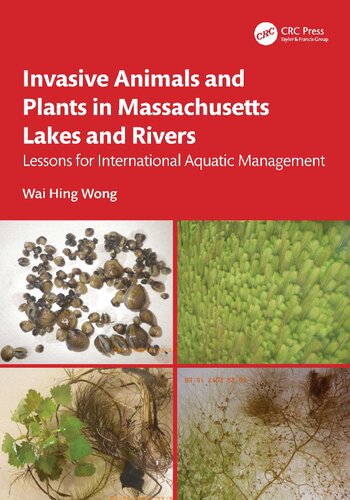

Most ebook files are in PDF format, so you can easily read them using various software such as Foxit Reader or directly on the Google Chrome browser.
Some ebook files are released by publishers in other formats such as .awz, .mobi, .epub, .fb2, etc. You may need to install specific software to read these formats on mobile/PC, such as Calibre.
Please read the tutorial at this link: https://ebookbell.com/faq
We offer FREE conversion to the popular formats you request; however, this may take some time. Therefore, right after payment, please email us, and we will try to provide the service as quickly as possible.
For some exceptional file formats or broken links (if any), please refrain from opening any disputes. Instead, email us first, and we will try to assist within a maximum of 6 hours.
EbookBell Team

4.8
84 reviewsThere is a growing demand for appropriate management of aquatic invasive species in lakes and rivers worldwide. This book covers biology, invasion ecology, sightings, and control techniques of 4 invasive animals and 15 invasive plants in Massachusetts lakes and rivers. It provides valuable information on their biological characteristics and potential expansion pathways, as well as monitoring and management, including alternative management tools using updated biological, chemical, and mechanical methods. The book also includes the regulation of invasive species management to allow resource managers, biologists, practitioners, volunteers, and students a better understanding of compliance and enforcement with environmental law. An example of successful management is highlighted for each invasive species.
Invasive Animals and Plants in Massachusetts Lakes and Rivers is the first book to provide comprehensive and systematic coverage and illustrations for both freshwater invasive animals and plants. Although focussing on Massachusetts, it will provide readers with the bigger picture on multiple invasive species, from prevention, early detection, control, ecological restoration, to public education. Natural resource managers in Massachusetts and surrounding states will glean the detailed and valuable information they need to learn and use to prevent and manage freshwater invasive species in the field.